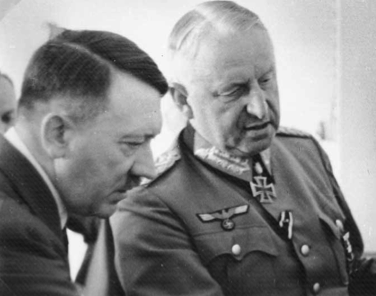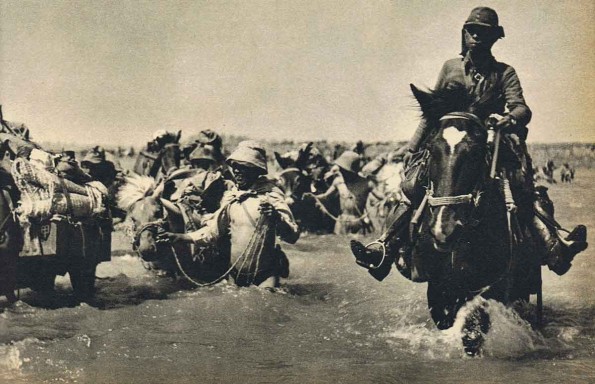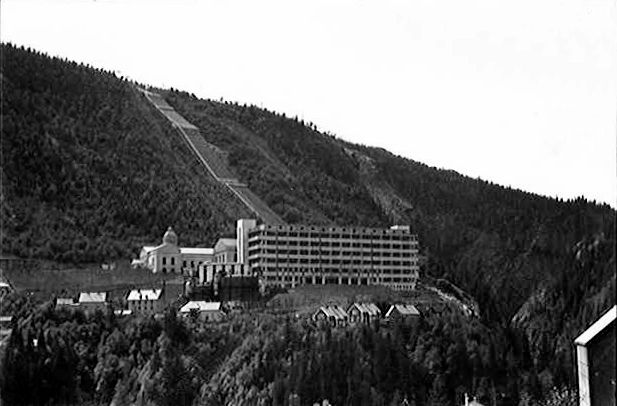Wednesday 8 May 1940
 |
| Hitler and Manstein talk it over. |
The Prime Minister….has appealed for sacrifice….he should sacrifice the Seals of Office !Herbert Morrison, Labour MP, calls for a vote of no confidence. Chamberlain views the vote as perfunctory, saying,
At least I shall see who is with us and who is against us and I call upon my friends to support us in the lobby tonight. I have friends in this House.The vote at 23:30 comes out in Prime Minister Chamberlain's favor, 281 - 200. However, Chamberlain loses 33 conservative members and the vote total is less than previous votes of support. It is an insufficient level of support for a Prime Minister. Accordingly, Chamberlain decides to resign after anguished late-night talks with First Lord of the Admiralty Winston Churchill, who has been conspicuously absent as a target during the debate.
 |
| Prime Minister Chamberlain wins the vote but resigns anyway. |
The Germans claim that Dutch mobilization on 7 May 1940 is proof that the Allies intend to invade Holland.
William Shirer in Berlin has some advice for Associated Press on whether to transfer their Amsterdam correspondent to Norway: "The war will come to him, soon enough."
Norway: German troops are advancing north from Grong in the vicinity of Narvik against a Norwegian battalion. The Norwegians are falling back on Mosjøen, conducting demolitions. During the night, the British Nos. 4 and 5 Independent Companies (special forces) land at Mosjøen, which had been held by a small French detachment.
No. 1 Independent Company secures Mo i Rana, while No. 3 Independent Company proceeds to Bodø.
The Independent Companies are under the command of Lieutenant Colonel Colin Gubbins, who organized them. They are designed for raiding purposes, not land battles. Altogether, the Independent Companies form Scissors Force.
To the south of Narvik, Polish Podhale Brigade deploys.
Battle of the Atlantic: German raider Widder departs from Bergen.
Convoy OA 144 departs from Southend, Convoy OB 144 departs from Liverpool, Convoy HX 41 departs from Halifax.
Anglo/Polish Relations: A military agreement is signed.
Middle East: General Wavell and General Weygand meet in Beirut to discuss French plans regarding Crete and Milos in the event of an Italian declaration of War.
Belgium: The Belgian embassy in Brussels informs the government that German Foreign Minister Ribbentrop is preparing an ultimatum - which is a standard German prelude to invasion. In addition, the German OKW (military high command) already has given the final orders for the invasion.
Holocaust: Jews in German-occupied territory are now banned from restaurants, parks, museums, trains, owning land. They have a 5 pm curfew and must wear the Yellow Star of David, the "badge of shame." Chaim Kaplan comments, "My own eyes saw a `badge of shame': a yellow patch saying 'Jew.' I advise everyone add, next to 'Jew,' the words: My Pride.”
The river gunboat USS Tutuila (PR 4) is damaged when she runs aground on a reef and becomes stranded while shifting her anchorage at Chungking, China.
Future History: Ricky Nelson is born in Teaneck, New Jersey. He becomes a television star in The Adventures of Ozzie and Harriet (1952–66) and is inducted into the Rock and Roll Hall of Fame on 21 January 1981. He perishes in a plane crash on December 31, 1985.
Toni Tennille is born in Montgomery, Alabama. She becomes famous in the 1970s as the singer in Captain & Tennille.
Peter Benchley is born in Princeton, New Jersey. He becomes famous in the 1970s as the author of Jaws.
 |
| British, French and Polish soldiers on a British ship, 8 May 1940. |
May 1940
May 1, 1940: British Leave ÅndalsnesMay 2, 1940: British Depart Namsos
May 3, 1940: Many Norwegians Surrendering
May 4, 1940: Bader Returns
May 5, 1940: HMS Seal Survives
May 6, 1940: Allies Focus on Narvik
May 7, 1940: In The Name of God, Go!
May 8, 1940: Exit Chamberlain
May 9, 1940: Enter Churchill
May 10, 1940: Fall Gelb
May 11, 1940: Eben Emael Surrenders
May 12, 1940: Germans at Sedan
May 13, 1940: Rommel at Work
May 14, 1940: German Breakout in France
May 15, 1940: Holland Surrenders
May 16, 1940: Dash to the Channel
May 17, 1940: Germans Take Brussels
May 18, 1940: Germans Take Antwerp
May 19, 1940: Failed French Counterattack
May 20, 1940: Panzers on the Coast
May 21, 1940: Battle of Arras
May 22, 1940: Attacking Channel Ports
May 23, 1940: British Evacuate Boulogne
May 24, 1940: Hitler's Stop Order
May 25, 1940: Belgian Defenses Creaking
May 26, 1940: Operation Dynamo
May 27, 1940: King Leopold Surrenders
May 28, 1940: The Allies Take Narvik
May 29, 1940: Lille Falls
May 30, 1940: Operation Fish
May 31, 1940: Peak Day for Dynamo
2019




